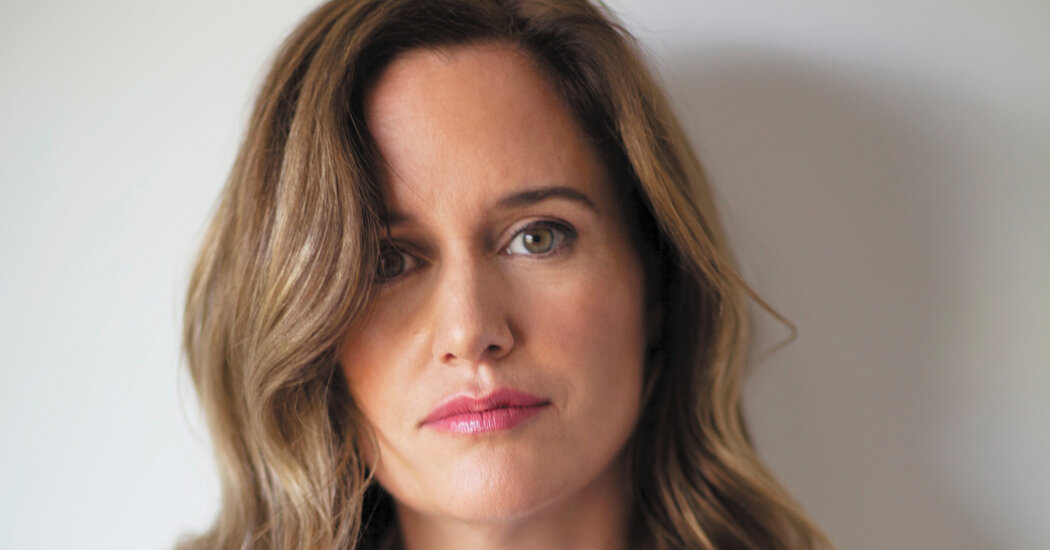FOREVERLAND
On the Divine Tedium of Marriage
By Heather Havrilesky
Sometimes the dedication of a book is integral to understanding it. “Foreverland,” a memoir of a marriage that proposes to illuminate marriage itself, is dedicated simply “To Bill,” the husband of Heather Havrilesky, its author, who pays him this brief honor as a prelude to writing endlessly about his flaws.
This seemingly one-sided bargain is worth noting because it is typical of the relationship at the very center of the story, a marriage between a neurotic perfectionist and a formidably patient man with much to criticize about him, from an annoyingly “phlegmy” throat to a similarity to “a heap of laundry: smelly, inert, useless, almost sentient but not quite.” And these are just his physical faults — or at least a sampling of them. Bill’s putative mental and emotional shortcomings could themselves fill a book. And they very nearly do.
That the author has made her particular disgusts (and her generous way of occasionally overlooking them) the basis for a general treatise on matrimony is the abiding problem of “Foreverland.” How well can an institution be explained by a single instance of it, and especially by one beset with problems that aren’t necessarily widely shared? Quite well, Havrilesky seems to feel, or else she wouldn’t start so many sentences with sweeping prefaces such as “Marriage is” or “Having a baby means” or “The suburbs are” followed by blanket statements of what they are.
Let’s examine a couple of these sentences and the narrative evidence marshaled to support them. “Marriage is a spectacle, and everyone is invited to watch.” Here the author is talking about her mother, who observed at one point in her daughter’s frantic relationship, after she and Bill had kids, that she found their prospects worrisome. Havrilesky both bridles at this notion and obsesses over its possible accuracy. She is, as ever, amusingly sarcastic. “Your house is just like your acceptably mediocre day care: Everyone yells at each other, and then you get to eat powdered sugar-covered doughnuts, and then everyone is happy and has sugar all over their faces. Your world is not really collapsing.”
More evocations of mayhem follow this one — of spousal illnesses and shedding dogs and hollering children and the like; the staples of 1950s TV comedy — but what they prove about marriage as “a spectacle” watched by “everyone” I’m still not sure. I know only my own marriage, like her, and I prefer to hide its nuttier moments. Marriage is — for myself and others — a secret.
“The suburbs are a place where people go to embrace the dominant paradigm, because the dominant paradigm makes them feel safe and comfortable.” A dominant paradigm? In today’s America? As often happens in the book, Havrilesky’s big wedding being an example, the paradigm here is in the author’s head and those of her specific cohort and feels decidedly anachronistic, like a cultish tribute to traditions that allegedly dominated once but are now on the order of Americana music or consciously “basic” styles of dress. Indeed, the suburbs she describes — with their complement of harried strivers sacrificing to educate their kids — strike one as rather novel, considering. Yet the focus of the text is on big lawns, lawns with warning signs about canine feces, concerns over property values and other clichés.
I suppose that’s the point — the suburbs are clichéd — but so is complaining about them in this fashion. Havrilesky, to her credit, says as much, but then she barrels forward anyway, spouting truisms about quiet desperation. “Being part of a community,” she observes, reprising a vision of the burbs articulated by legions of predecessors, “turns out to include countless hours of trying to look relaxed while you freak out on the inside.”
This attraction to the categorical, this yearning for the definitive broad statement, is unfortunate in a writer whose signal gift is for mordant, close-up descriptive prose. (Much to husband Bill’s chagrin, perhaps.) One of the book’s best episodes involves a chaotic last-minute cross-country road trip of too many miles and too few bathrooms. Stretches of scatological low comedy are cut with apt asides on the crazed intimacy of traveling by car with kids. It’s a bravado feat of family portraiture: savage, tender, claustrophobic. And Bill comes alive, escaping the gravity of the author’s confessedly self-centered consciousness. The trip is, in fact, a high point for their partnership, after which their story darkens, drifting toward romantic stalemate, potential infidelity and a harrowing medical crisis. We’ve spent enough time with the couple by this late stage that the universality of their predicament needn’t be asserted to be appreciated. Betrayal is betrayal. Fear of death is fear of death.
But what is marriage? A paradox. This seems to be Havrilesky’s final answer, but she gives it up front and repeats it along the way. It’s “mundane” yet “exotic.” It’s “grueling” yet “exhilarating.” It’s bad yet good in a thousand different ways that cover most every marriage ever made yet seem specific to no single one of them, except perhaps for hers. That she feels it’s especially exemplary in an age of careening domestic improvisation is somewhat mysterious and cause for argument, even from phlegmy, annoying Bill, I’d wager, who no doubt views matters in his own way.


























